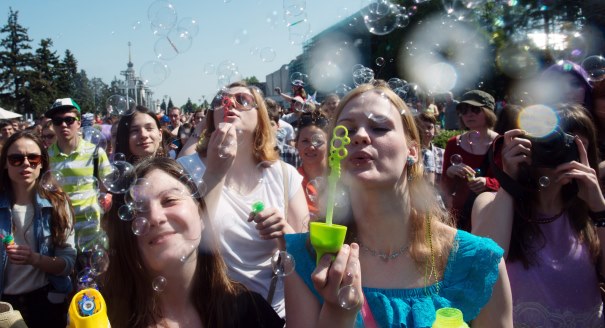Russia has seen nothing of the kind in the last twenty-five years. I am not talking about Putin’s stunning 82 percent approval rating. I mean the incredible optimism of the Russian public. Even those dissatisfied with their lot have suddenly experienced a rush of happiness and optimism. While the country has rolled back all its reforms, 58 percent of the respondents to a Levada Center poll believe that reforms continue (only 27 percent think otherwise). As authoritarianism gains new strength and political life becomes less transparent, 57 percent of those polled say it isn’t so, claiming that Russian political life is open and government policies are widely discussed (only 33 percent express their skepticism). The state infringes on human rights, but only 38 percent see it this way, while 48 percent consider their country democratic.
Russia’s current military-patriotic high is much stronger and will be harder to overcome. Nevertheless, Russia will have to do it. People will be forced to see how serious the problems the country faces are. This will be the moment of truth, which Russia is fast approaching.
